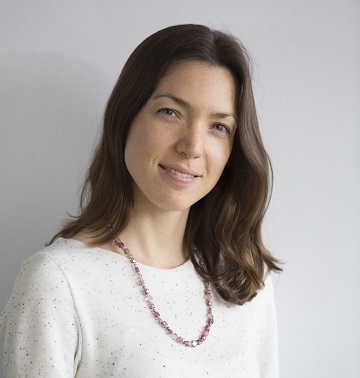 You might not know her yet, but Andrea Rodrigues is a young lady soon to be making waves across the wider digital industry. As the newly crowned Young Digital Leader for 2019 – awards for which our CEO Russell Haworth acted as one of the judges – Andrea is finally getting the attention she deserves for her skills as a programmer and her determination to get young people inspired by technology from an early age.
You might not know her yet, but Andrea Rodrigues is a young lady soon to be making waves across the wider digital industry. As the newly crowned Young Digital Leader for 2019 – awards for which our CEO Russell Haworth acted as one of the judges – Andrea is finally getting the attention she deserves for her skills as a programmer and her determination to get young people inspired by technology from an early age.
“Teaching youngsters digital skills is vital,” she says. “It gives them chance to learn skills like problem solving and computational thinking. It can also help them recognise that technology can be used to positively impact our daily lives – and it can be creative.”
She speaks from experience, not long out of school herself. “I always liked the creative subjects at school like art, but also engineering because I liked to build things,” she says. It wasn’t until she picked a few basic programming skills so she could create herself a website for her art that she discovered “digital skills like coding could be so much more creative than I expected.”
Andrea subsequently sought out more opportunities to learn, attending the Royal Institution Computing Masterclass where “I really got excited about technology – the potential benefits for our world are incredible.” She now studies at Ada, the National College for Digital Skills and plans to train as a software engineer, but harbours ambitions to start her own business one day: “It would be a business that provides technological services and develops technology that really benefits our world – that is really important to me.”
This starts, Andrea believes, with inspiring the future generation to recognise the positive potential of technology. Through her college, Andrea is involved in a Primary Computing Club that teaches primary children to code. She has also closed the circle with the Royal Institution: “I’ve been helping them with their first ever Primary Computing Masterclass and it has been so fulfilling to be able to inspire the younger students the way I had been inspired all those years ago.”
She is aware that getting in early could start to turn the tide when it comes to a lack of diversity in the technology sector. Research has suggested that girls often lose interest in STEM subjects as they reach their teenage years, so giving them access to skills like coding in primary school could be invaluable to boosting the pipeline in the years to come. Nominet’s own research also warned that parents may not be doing enough to encourage girls towards careers in the tech sector.
“When I was growing up, there were hardly any female role models in the digital industry – and we really need more women to join,” she says. “I hope that being a Digital Leader will help me to be a figure in the industry that young people look up to, and hopefully help them to get motivated. They need to recognise the tech industry as a place for them too.”
Andrea admits she was fortunate to have attended an all-girls school, without any assumptions that STEM subjects were unsuitable. “I never believed coding was for boys because I enjoyed it so much,” she says. “And my parents and my sisters have always been so supportive of everything I have wanted to do. My mum took me to all my work experience placements – at Microsoft, Cisco, IBM and Vodaphone – even though they were quite a long way from our house!”
She is a firm believer that technology has made our lives better: “Technology is incredible in that it allows us to achieve our most ambitious goals, connect with people across the world and improve our daily lives by solving everyday issues,” she says.
But she is conscious of the challenges ahead: “the part that concerns me is that the speed of technology development can disconnect the generations that are older than myself.” She references a recent panel event where discussion turned to IoT devices and Smart Cities – and the risk that older people won’t want to use the devices that underpin them.
“It is so important that everyone at every age should be taught to use devices and be empowered to recognise the potential benefits new technology can bring them,” she says. “We can’t risk a digital disconnection with the older generations.”
Andrea is rising up to join the ranks of tomorrow’s Digital Leaders. The award has given her a platform that she is determined to use to its full potential:
“Receiving the Young Digital Leader award is just the beginning of this incredible journey,” she says. “It thrills me that this award will give me the chance to inspire the future of tech and drive the digital transformation ahead.”


